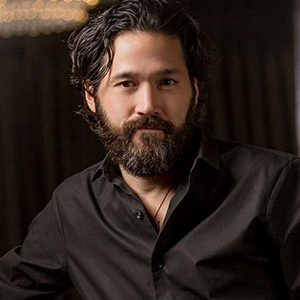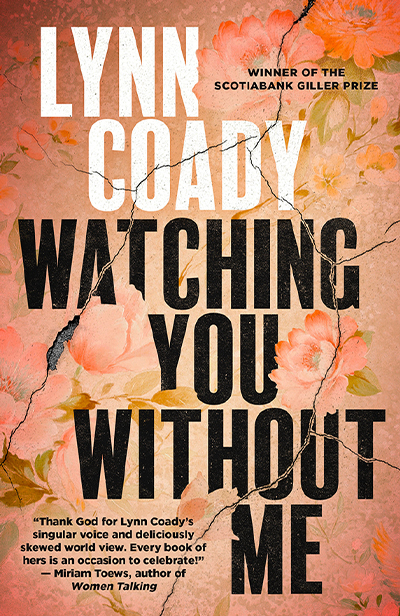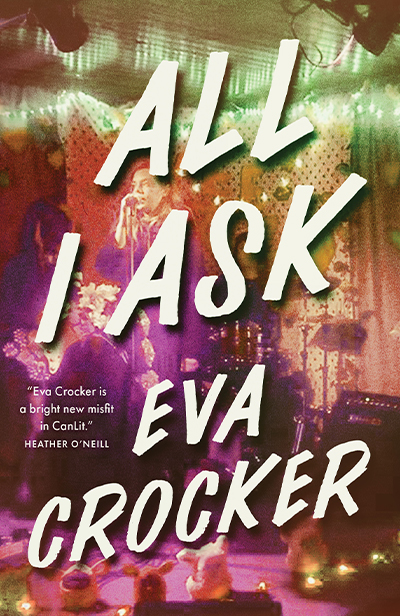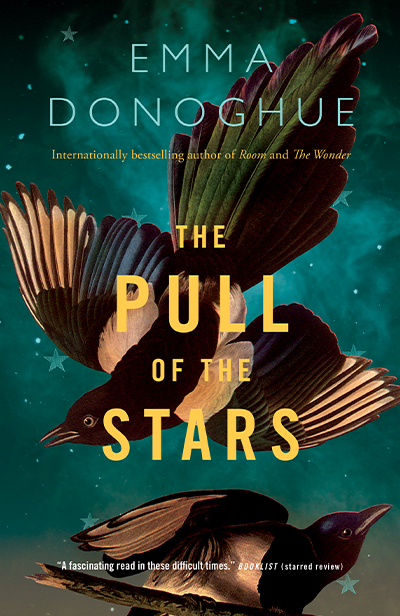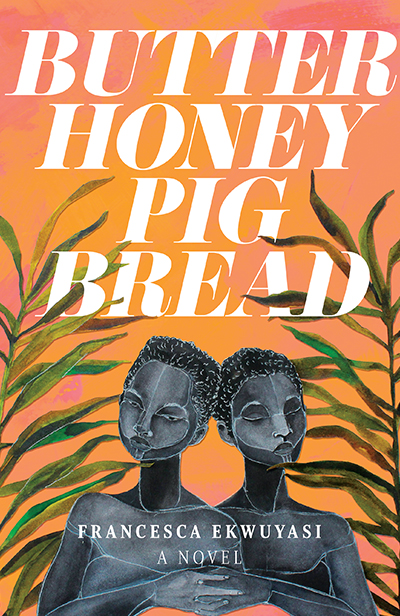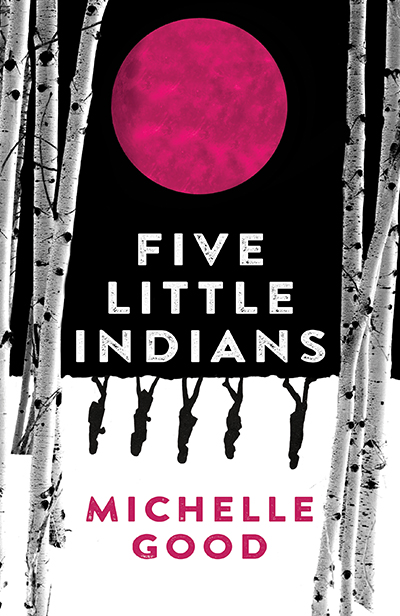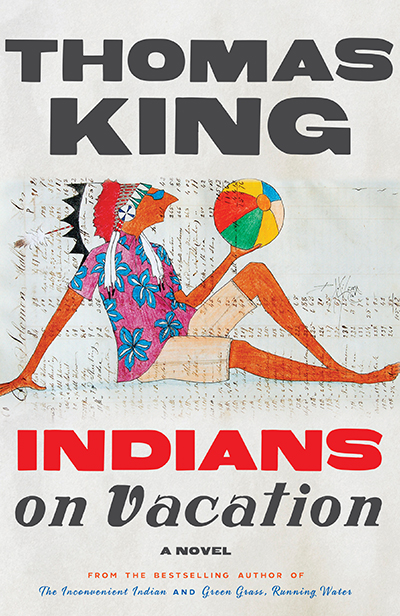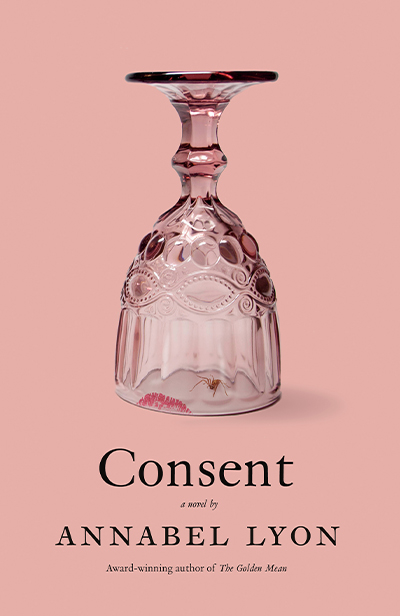2020 Shortlist
The 2020 Scotiabank Giller Prize jury announced its shortlist on Monday, October 5, 2020. The five titles were chosen from a longlist of 14 books announced in St. John’s, NL on September 8, 2020.
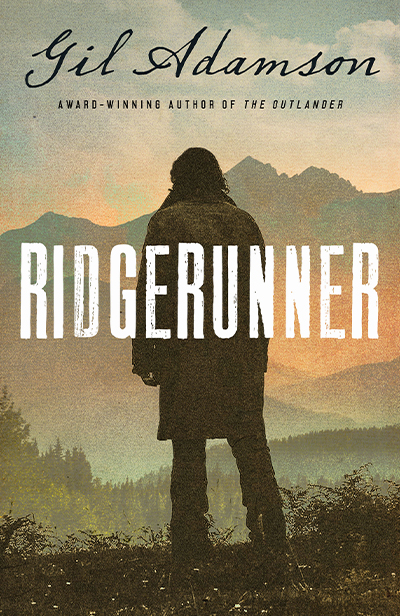
Ridgerunner by Gil Adamson
Biography
Gil Adamson is the critically acclaimed author of The Outlander, which won the Dashiell Hammett Prize for Literary Excellence in Crime Writing, the Amazon.ca First Novel Award, the ReLit Award, and the Drummer General’s Award. It was a finalist for the Commonwealth Writers’ Prize, CBC Canada Reads, and the Prix Femina in France; longlisted for the International IMPAC Dublin Literary Award; and chosen as a Globe and Mail and Washington Post Top 100 Book. She is also the author of a collection of linked stories, Help Me, Jacques Cousteau, and two poetry collections, Primitive and Ashland. She lives in Toronto.
Jury Citation
The long-awaited sequel to Gil Adamson’s hit The Outlander moves the action forward a decade, returning the 13-year-old son of the original protagonists to a forested land into which prisoners of the first world war are now hewing roads. The proximity of this new type of outlaw presents an existential threat to young Jack, who takes refuge in his parents’ abandoned shack with a price on his head after escaping the toxic hypocrisies of ‘civilisation’. Drawing richly on both the Western and on gothic fiction, Adamson evokes a mythic landscape to frame the question: how is it possible to live a good life, when obedience to man-made laws is so at odds with love, loyalty and respect for the natural world?
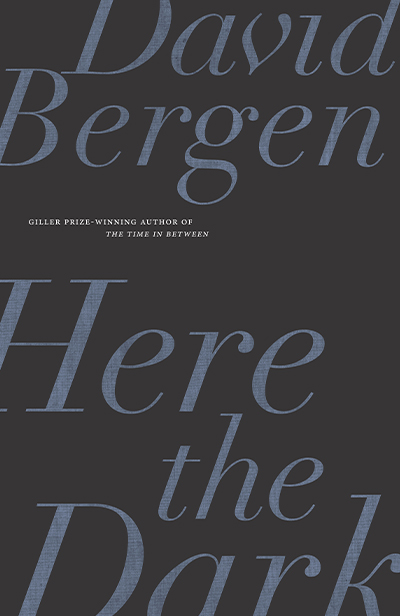
Here the Dark by David Bergen
Biography
David Bergen has published eight novels and a collection of short stories. His work has been nominated for the Governor General’s Literary Award, the Impac Dublin Literary Award, and a Pushcart Prize. He won the Giller Prize for his novel The Time in Between. In 2018, he was given the Writers’ Trust Matt Cohen Award: In Celebration of a Writing Life.
Jury Citation
A dying woman asks an aging rancher to become her last lover. A fishing boat sputters to a halt off the coast of Honduras, compelling its owner to decide the fate of his repellent client. A young woman in a puritanical religious community glimpses the coloured world outside, and must choose whether to close her eyes, or to run. Sexual loneliness and moral confusion pull at the delicately wrought characters in David Bergen’s latest work, a story collection of masterly skill and tension. His third appearance on the Giller shortlist – including the 2005 winner, The Time in Between – affirms Bergen among Canada’s most powerful writers. His pages light up; all around falls into darkness.
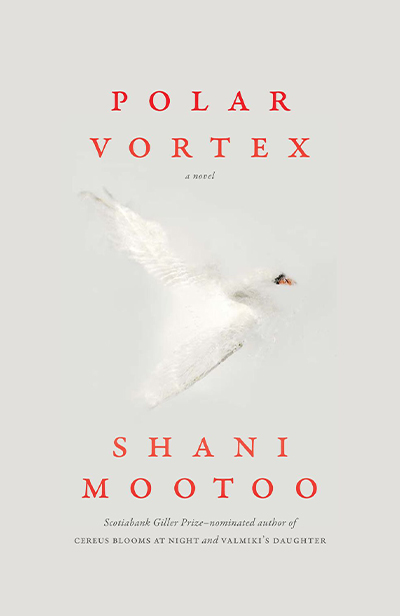
Polar Vortex by Shani Mootoo
Biography
Shani Mootoo was born in Ireland, grew up in Trinidad, and lives in Canada. She holds an MA in English from the University of Guelph, writes fiction and poetry, and is a visual artist whose work has been exhibited locally and internationally. Mootoo’s critically acclaimed novels include Moving Forward Sideways Like a Crab, Valmiki’s Daughter, He Drown She in the Sea, and Cereus Blooms at Night. She is a recipient of the K.M. Hunter Artist Award, a Chalmers Arts Fellowship, and the James Duggins Mid-Career Novelist Award from the Lambda Literary Awards. Her work has been long- and shortlisted for the Scotiabank Giller Prize, the International DUBLIN Literary Award, and the Booker Prize. She lives in Prince Edward County, Ontario.
Jury Citation
A keen meditation on the complexities of identity and desire, Polar Vortex is the unsettling examination of a failing marriage. In a small, southern Ontario town, Priya impulsively invites an old suitor, Prakesh, to spend the night and his arrival triggers the fault lines in her relationship with Alexandra. Conflicting wants and untold truths drag the past into the present. Memories cascade and clash as Mootoo masterfully dismantles the stories the narrators tell themselves in language as unsparing as winter.
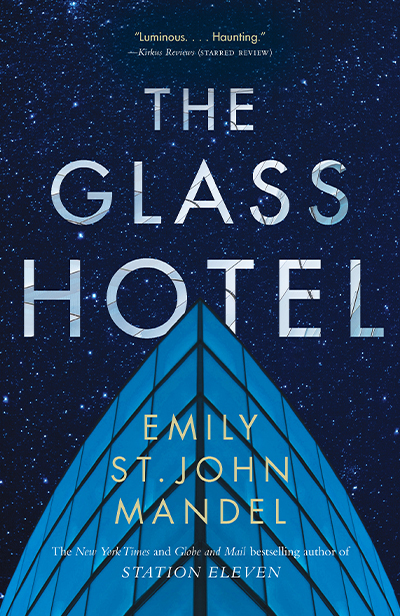
The Glass Hotel by Emily St. John Mandel
Biography
Emily St. John Mandel is the author of four novels, most recently Station Eleven, which was a finalist for a National Book Award and the PEN/Faulkner Award; won the 2015 Arthur C. Clarke Award, the Toronto Book Award and the Morning News Tournament of Books; and has been translated into thirty-one languages. A previous novel, The Singer’s Gun, was the 2014 winner of the Prix Mystère de la Critique in France. Her short fiction and essays have been anthologized in numerous collections, including The Best American Mystery Stories 2013. She is a staff writer for The Millions. She lives in New York City with her husband and daughter.
Jury Citation
A boldly lyrical tale echoing the deceit and ruin of the 2008 financial crisis, The Glass Hotel brings together two restless siblings and a multi-billion-dollar investor as they each negotiate ambition, secrets, and loss within the kingdom of money. Bridging the natural beauty of the Pacific Northwest, the shops and towers of Manhattan, and the netherworld of open waters, the novel commands a broad array of characters and a plot of kaleidoscopic intricacy. Here, in her eagerly anticipated follow-up to Station Eleven, Emily St. John Mandel turns her gifted attention to the mirages of now, and to the truth that we are haunted, always, by the lives of others.
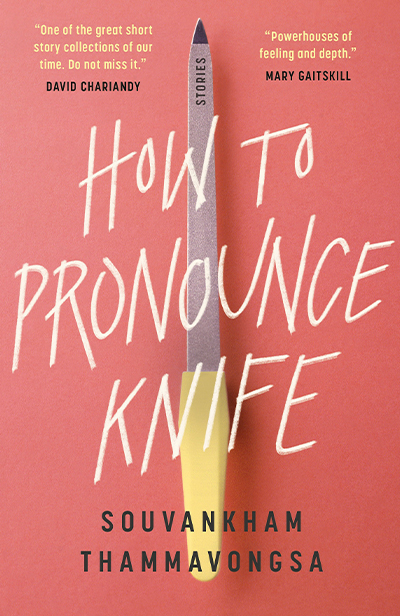
How to Pronounce Knife by Souvankham Thammavongsa
Biography
Souvankham Thammavongsa is the author of four poetry books: Light, winner of the Trillium Book Award for Poetry; Found; Small Arguments, winner of the ReLit Award; and, most recently, Cluster. Her fiction has appeared in Harper’s, Granta, The Atlantic, The Paris Review, Ploughshares, Best American Non-Required Reading, The Journey Prize Stories, and The O. Henry Prize Stories. How to Pronounce Knife is her debut book of fiction, and the title story was shortlisted for the Commonwealth Short Story Prize. Born in the Lao refugee camp in Nong Khai, Thailand, she was raised and educated in Toronto, where she is at work on her first novel.
Jury Citation
The Scotiabank Giller Prize introduced me to Souvankham Thammavongsa’s work. I could not be more grateful. How to Pronounce Knife is a stunning collection of stories that portray the immigrant experience in achingly beautiful prose. The emotional expanse chronicled in this collection is truly remarkable. These stories are vessels of hope, of hurt, of rejection, of loss and of finding one’s footing in a new and strange land. Thammavongsa’s fiction cuts to the core of the immigrant reality like a knife – however you pronounce it.
2020 Longlist
The 2020 Scotiabank Giller Prize jury announced its longlist on Tuesday, September 8, 2020.

Ridgerunner by Gil Adamson
Cold as the days were, the sun was intense. Every noon he boiled in his coat and every night he lay shivering on the frigid ground and whined like a dog. After four days and nights, his feet were very bad. He suspected they were bloody by now but he couldn’t bring himself to pull off the boots and look.
This was open country. To the east, long grass and low trees all the way to the horizon, but to the west, the land bled into the cloud-like silhouette of the mountains. Days ago he had lost sight of the ranges he called home, and now he paced alongside peaks he remembered only dimly, from long ago, when he was a younger man, a line of only half-familiar shapes, the faces of past acquaintances. He’d stolen everything he could from a ranger’s station outside Banff, including a knapsack, a hatchet, matches, and a blanketcoat with ROCKY MTNS PARK stencilled across the shoulder blades and STN 153 on the chest. He’d found nothing useful for hunting. No gun, not even a knife.
The jerky he’d been eating began to fume right through the canvas of his knapsack and sicken him as he walked. Holding the bag to his belly he clawed through it, dropping behind him the last strips of meat. Then the reeking square of oilcloth in which they had been wrapped fluttered down to settle on a tuft of grass like a tiny umbrella. He took out the hatchet and considered dropping it as well, to get rid of the weight, but couldn’t open his hand. The hatchet had great utility, so he slid it back into his bag. He was god-almighty thirsty and dreamed as he walked, dreamed of a river, of drinking gallons of water from that cold river.
One afternoon he came upon a gully packed with young trees, which turned out to be mostly dry, but he dug down and sipped at a muddy pool. Then he rolled onto his side under the cover of shrubs and slept hard. When he rose a few hours later it was getting on to dark and he was stiff and trembling.
That night he found himself on the road he had been looking for. He followed it until he was standing, as planned, outside the little guard hut at the Sweetgrass border-crossing between Alberta and Montana. He stood by the lightless window and swayed on numb legs. A bright coin of a moon overhead and no wind at all. The world was utterly still, so quiet he could hear his own ears humming. William Moreland stood like an idiot before the hut and waited for the guard. He stared about with hollow eyes and slowly came to the conclusion that he should probably do something.
Beyond the hut was a small gabled house and an unoccupied corral. There was a motorcar up on blocks by the kitchen door, but no lights to be seen anywhere. Moreland tried to call out with his dry throat but all that came out was a thin hiss; his first attempt to speak in more than a week. The applicant to cross over simply waited there, as he should, trying to either speak to authority or call for service, but could make no sound at all, while the guard slumbered somewhere out of sight.
A barn owl melted out of the dark and alighted on a gable of the house. They gazed unblinking at each other until the owl tilted off and moved without sound to the west.
The absurdity of the situation was not lost on Moreland: this was after all the border between two countries. But all around him was a sea of grass and rolling land and wind and animals and dust and seeds that flowed this way and that across the imagined line. A decade and a half earlier he would not have stopped, nor intended to stop, nor have approached the crossing station at all. He would not have given it the slightest thought, he would have gone his own quiet, solitary way, neither wild nor domesticated, just alone. But now he had been so long among people he’d forgotten that part of himself. So it came to him very slowly that the natural world, having long ago defined its own precincts and notions of order, was simply waiting for him to become unstuck.
He cupped his face and pressed it to the thin glass. In the darkness of the hut he saw a wooden counter and a high stool. He wandered around to the rear and pulled open the door. Inside, he found a shelf under the counter on which stood a few romance books, a clean plate and a fork, long-dead bees and bits of bee, and below that, bolted to the floor, a small metal box. On top lay a heavy padlock, twisted open, and the key was stuck in it. He gathered the padlock into his fist and opened the box.
Moreland stood for a long time looking down at the revolver. An army model, Colt single action. There were a few spare rounds in the box, some of which didn’t match the gun but seemed to have been put there for tidy housekeeping. He considered taking the pistol, but in the end, he shut the lid of the box, put the padlock back on top, shut the door to the hut, and left everything as it had been. He went back out into the night, moving south, always south, wading through a vasting nothingness of grass. An ocean of grass.
Two days later, Moreland found himself looking down at the twin ribbons of steel at his feet, the exact rail line he’d been aiming for. He stepped between them and followed the tracks. All that day and into the next he neither saw nor heard a single train; saw no people in the distance, no roads, nothing but hawks and grouse and other birds he could not name.
He woke that night thinking his son was with him — “Jack, quit squirming” — only to find himself alone and on the ground, an infant rabbit exploring his coat sleeve. He lay still and let it crawl onto his chest and chew his buttons, wander his lapels, taste the salt in the hollow of his throat. His hand came up to stroke the tiny animal but it dashed away. After a moment that same hand settled over his eyes to shut out the stars, and he gave in and wept.
He could not stop seeing her, his beautiful wife, dead in the bed, curled in on herself like a sleeping child. He could not stop seeing her that way, so he saw nothing else.
—
Excerpted from RIDGERUNNER. Copyright © 2020 by Gil Adamson. Excerpted by permission of House of Anansi Press. All rights reserved. No part of this excerpt may be reproduced or reprinted without permission in writing from the publisher.

Here the Dark by David Bergen
The deacons were most fearful of books, specifically fiction, and if they had asked Lily, she would have agreed, for novels set forth her imagination and took her to places she had never experienced, and they offered characters and descriptions of characters, but of course it was Lily who painted the final image of those characters. The possibilities were endless. Lily twisted the words and gave them new meaning and she twisted the descriptions of characters and she embellished their lives and the meaning that might be made of those lives. For example, she read that the young man who kills the old woman with the axe was “well-built with beautiful dark eyes and dark brown hair.” But in her mind he was small and blond and dirty and not good-looking. He was Russian, and if he was Russian he must be blond, for her own descendants were Russian and blond, and her own descendants were stocky and they had rough faces and odd physical deformities. Like Frantz Gerbrandt, Johan’s older brother, who was ugly, and who was, according to legend, wild and untamable. And so she created images that weren’t at all faithful to the intent of the author. Did that matter? Not at all.
One day, in early fall, Marcie gave her a novel and told her that it was crazy and weird. She said there was a lot of sex in it, and she smiled.
Lily didn’t mind sex, but she thought that too much was made of it, and she thought that the word itself was vulgar. She preferred ‘having love,’ or ‘intercourse,’ which was like a conversation. She had liked the Russian story best of all, and this was because there had been spiritual love rather than sex. She didn’t say any of this to Marcie. She took the novel home and she read it through the night. She finished as the morning light was opening up the sky. She heard her father downstairs. She heard her mother’s voice. She got up. She had in her mind now images of children drowning, and women sucking on penises, and men wearing dresses. The world of the book had been so foreign, so opposite, that she had been absolutely repelled by it and at the same time absolutely drawn to it. That morning, she left the book on the floor beside her bed.
All that day she made jam with her mother. They picked strawberries and they hulled and washed the berries and then Lily crushed the berries by hand and boiled them with sugar and pectin and poured them into sealer jars and poured hot wax over the jam in order to seal the jars, and then they screwed on the lids and wiped the sticky jars with a hot soapy cloth and dried them, and set the jars in rows on the kitchen counter. Late afternoon, she came in with fresh baskets of strawberries and on the dining-room table she saw the book. It was lying face down on the oilcloth. Her heart went wild and she paused and then, uncertain of what would happen next, she entered the kitchen. Her mother was skimming the foam from a fresh batch of jam. Spooning it into a white bowl. Lily carried on. Her mother said nothing. At supper, the book had disappeared. And still, nothing was said. She washed the dishes after supper, and then took her baby sister, Karen, out into the yard. Karen was three, a miracle baby she was called, and everything that could be done for her was done with awe and love. It was still hot and so Lily sat in the shade on an old wooden chair and she watched Karen toddle circles around her, her brown fat ankles sticking out from her dress. Lily had sewn the dress for Karen earlier that summer, from leftover cloth that Lily had used for one of her own dresses. The colours were a pale yellow and off-white and there were pastel bouquets of flowers in the pattern.
Lily’s mind was scattered. She suspected that her father would open the book and study it. Her mother, she knew, would not touch it, and for this she was glad. Her mother was the harsher of the parents, more worried about the impressions of others, concerned about gossip and finger-pointing. Her father was more forgiving, in a rueful manner, but she also knew that her father couldn’t overlook this trespass.
Dusk came. She gathered up Karen and carried her inside and boiled water for a bath. She poured hot water into the metal tub that sat on the kitchen floor. She added cold water and tested it with her wrist. Then she undressed Karen and sat her down in the tub. She scrubbed her back and soaped her little feet. Karen giggled and pulled away. She washed Karen’s face and behind her ears. Karen fought. Lily persisted. Normally she would have made a game of this, the washing, the bath, the scrubbing, but on this evening she had no desire. When she had finished the bathing, she scooped Karen into a large blue towel and dried her. Carried her up to her bedroom and set her down and let her run naked around the room. It was too hot for pajamas. She considered the nakedness of childhood and she thought about the nakedness of adults, and she wished that she was once again a child. She tucked Karen into bed. They prayed together, Karen kneeling on the bed, Lily kneeling beside the bed. In the evening, in the night, holy Jesus keep us light. If we pass before we wake, we pray thee please our souls to take. When they were finished praying, she kissed Karen on the forehead and said goodnight.
Her parents were sitting at the dining-room table when she came down the stairs. Her Uncle Hans was there as well. The book was face up on the table. Lily paused in the doorway. Her father told her to sit with them. She did so. Her father pointed at the book and said, “What is this?”
“It is not mine,” she said.
“Where did you get it?”
She did not answer.
Her mother sighed.
Her father picked up the book and opened it and read. The passage he had chosen was sexual and frank. Lily wondered how he had found that passage. Had it just opened to that page? When he finally halted, he placed the book on the table and he said, “How can this be edifying?”
Lily shrugged. She had no answer, or no answer that would have satisfied him.
“Have there been other books?” he asked.
She shook her head.
“Are you lying?” he asked.
She shook her head.
And then Uncle Hans spoke. His voice was softer than her father’s and he said her name, “Lily,” and then he said that ideas and images from the outside were forever dangerous, because those ideas worked from the outside to the inside and then back to the outside so that what were our thoughts
now became our actions. “These are thoughts that seep into your soul,” he said. “And it is impossible to remove them. They are like ink stains. They sit inside you and cannot be scrubbed away.” He said that he would go outside and he would build a fire, and he wanted Lily to come out with the book, and together they would burn it.
“It’s not mine to burn,” she said.
“Whose then?”
She didn’t answer.
Her father and her uncle rose and left the room and this left her with her mother, whose face was hard. “Filth,” her mother said.
Was this true? Lily did not know. She wondered how it was possible to enjoy reading filth. For she had. And she hadn’t. And then she realized that her mother was not referring to the book, but to her, Lily. She was filth.
In time, Lily stood and picked up the book and walked outside. The sun was setting. The light was soft and the sky was grey blue and the clouds were few.
The fire was burning in a half-barrel close to the barn. She approached her uncle, who stood alone and who gestured at the fire. Lily stepped forward and dropped the book into the flames. It did not burn immediately, for it was tightly bound, and even when it did begin to burn, the interior pages remained untouched, and so her uncle took up an iron rod and prodded at the book and he opened it so that the fire might attack all of it. During that time no words were spoken. There was just the action of her uncle spearing at the pages, and turning them, and offering them to the fire. Then it was finished, and only ashes remained. Her uncle turned and walked back to the house. Lily remained. She closed her eyes and when she opened them she looked for a sign that might perhaps arrive in the physical world around her.
And here the clouds like many dark sheep gone astray, and here the orange sun burning the world, and here the hare that hides from the circling hawk, and here the stretched singing of water-logged frogs, and here the light, and here the dark.
—
Excerpted from HERE THE DARK. Copyright © 2020 by David Bergen. Excerpted by permission of Biblioasis. All rights reserved. No part of this excerpt may be reproduced or reprinted without permission in writing from the publisher.

Polar Vortex by Shani Mootoo
She said to him, “You’re entirely grey.”
“I’m not grey,” he returned, his voice seeming to feign a peevishness belied by the irrepressible grin he wore. He looked at me—an appeal, it seemed—and I gathered this elaborate show of offence was a way of creating complicity among the three of us. He wore thin, gold wire- rimmed glasses, and behind them his eyes had turned misty. I thought I should turn away, leave them for a while, but I was more curious than ever about some obfuscated truth about their connection and did not want to miss any of this, so I continued with the task of removing skin from the blanched tomatoes as I looked on.
After inane banter about what time had and hadn’t done to them both—Priya commenting that he’d come to resemble his father, at which he beamed—he reached for and held on to both Priya’s hands and attempted to pull her toward him. That was a bit much, a bit theatrical, I thought. Perhaps she did, too, as she stepped in toward him for barely a second, and then, rather oddly, pulled a hand away and, although it seemed—mostly because of the smile she wore—as if it were meant to be playful, gently slapped his cheek. There was an intimacy to that odd gesture that I admit made my heart skip a beat, but I didn’t want to succumb to petty jealousies. I needed, I’d earlier decided, to remain strong and focused.
I couldn’t have known for sure, but I thought hurt flashed on his face—despite the ensuing chortling, which I took to be a manner of defence. Priya removed her jacket and threw it around one of the chair stools at the island counter. She made her way around the counter as I slid the skinned and chopped tomatoes into the skillet with the softened onions. And with more warmth than there had been between us earlier in the day, she wrapped her arms around me and kissed my cheek. She had taken on the scent of his lime- and- leather cologne, and this was like a fist tightening around my heart. To an onlooker there would, I’m sure, have been no hint, in the swift and almost ordinary gesture for two people who live together, of the distress that hung like a heavy curtain between us. It is possible such warmth was an indication, a display, either to him or to me, perhaps to him and to me, of where her allegiance lay. It is possible, too, that in front of a third person, dispensing affection was less complicated, required less of us both, than when we were alone. Her kiss on leaving the house with Skye earlier is a case in point.
I couldn’t bring myself to respond in kind, and she shifted away to inspect the pot on the stove, the awkwardness she felt as a result noticeable only to me, I believe. She stirred the sauce, the sweetness of the onions and garlic, the tartness of the as yet uncooked tomatoes rising from the skillet, and under her breath asked if I was sure there was enough for us all. I nudged her aside and told her I knew what I was doing, to let me do my job. It has been a long- standing irritation between us that she is forever telling me what I’ve done wrong or how this or that should be, or should have been done, and so this back and forth between us is rote, and could just then have easily been construed as a kind of usual play.
It’s your pot,” she conceded. “Carry on, then. I’m sure it’ll be good.”
Prakash laughed and said he’s just like me, that when he is in the kitchen he doesn’t like anyone telling him what to do.
Being with the two of them in the same room, seeing them together, suddenly had a new effect on me. I felt, for the first time, that it was good that he was here at this particular time. What was to be would be, and his presence here was probably, in the end, all for the good.
—
Excerpted from POLAR VORTEX. Copyright © 2020 by Shani Mootoo. Excerpted by permission of Book*hug Press. All rights reserved. No part of this excerpt may be reproduced or reprinted without permission in writing from the publisher.

The Glass Hotel by Emily St. John Mandel
We had crossed a line, that much was obvious, but it was difficult to say later exactly where that line had been. Or perhaps we’d all had different lines, or crossed the same line at different times. Simone, the new receptionist, didn’t even know the line was there until the day before Alkaitis was arrested, which is to say the day of 2008 holiday party, when Enrico came around to our desks in the late morning and told us that Alkaitis wanted us assembled in the seventeenth-floor conference room at one o’clock. This had never happened before. The Arrangement was something we did, not something we talked about.
Alkaitis came in at one fifteen, sat at the head of the table without making eye contact with anyone, and said, “We have liquidity problems.”
There was no air in the room.
“I’ve arranged for a loan from the brokerage company,” he said. “We’ll route it through London and record the wire transfers as income from European trading.”
“Will the loan be enough?” Enrico asked quietly.
“For the moment.”
A knock on the door just then, and Simone came in with the coffee. No one was sure where to look. Simone had only been on the job for three weeks and wasn’t party to the Arrangement, but it was immediately obvious to her that something was amiss. Only Ron returned her smile. Joelle started blankly at her, Oskar was looking very fixedly at the legal pad on the table before him, and it seemed to Simone that there were tears in his eyes. Enrico and Harvey were staring into space. Simone finished pouring the coffee and let herself out, closed the door, and waited in the corridor instead of walking away. It seemed to her that no one spoke for an unnaturally long time.
“Look,” Alkaitis said finally, “we all know what we do here.”
Later, some of us would pretend that we didn’t hear this, but Simone’s testimony would echo the accounts of several of us who did hear it. Some of us who pretended not to hear it would also pretend not to know there was a line – “I’m as much a victim as Mr. Alkaitis’s investors, “Joelle told a judge, who disagreed and sentenced her to twelve years – but then at the far opposite end of the spectrum was Harvey Alexander, who would agree wholeheartedly with Simone’s testimony and go on to confess to things he hadn’t even been accused of in a kind of ecstasy of guilt, weepily admitting to padding his expenses and stealing office supplies, while puzzled investigators took notes and tried to gently steer the conversation back to the crime.
But for those of us who did hear what Alkaitis said in that meeting – those of us who admitted to hearing it – that statement represented the final crossing, or perhaps more accurately, the moment when it was no longer possible to ignore the topography and pretend that the border hadn’t already been crossed. Of course we all knew what we did there. We weren’t idiots, except for Ron. We shuffled our papers, stared into space, imagined leaving the country (Oskar), or made firm, actionable plans to leave the country (Enrico), or decided fatalistically that it was too late to go anywhere (Harvey), or indulged in the fantastical notion that somehow everything would work itself out (Joelle).
Ron glanced around confused. He often seemed confused, the rest of us had noticed that about him, and it seemed he actually didn’t know what we did here, which was baffling in retrospect: what did he think we were doing if not running a Ponzi scheme? Still, there it was. He looked around in the silence, cleared his throat, and said, “Well we have so much trading activity with the London office already, though.”
The silence that followed this remark was, if possible, even worse than the silence has preceded it. No trade had ever been executed through the London office, because the London office was comprised of a single employee with five email addresses whose job consisted primarily of wiring funds to New York to give the appearance of European trading activity.
“That’s an excellent point, Ron, “Harvey said. He spoke kindly and with a certain sadness.
—
Excerpted from THE GLASS HOTEL. Copyright © 2020 by Emily St. John Mandel. Excerpted by permission of HarperCollins Publishers Ltd. All rights reserved. No part of this excerpt may be reproduced or reprinted without permission in writing from the publisher.

How to Pronounce Knife by Souvankham Thammavongsa
She’d gotten me a job with her out at the hog farm.
She was dressed in dark-blue jogging clothes. She threw a matching pair at me and told me to get dressed. Then, when I was standing on the front steps, waiting for her to lock up, she handed me two soup cans with the labels peeled off. They were filled with uncooked rice. I never thought to ask what this all was for, I just went along with it, still groggy from sleep.
My mother drove us—it was just me and her—out to the hog farm. Driving was something she liked to do. She got her licence not long ago. She had failed the test four times, but she kept going back until she passed.
She had bought the car from our neighbour. Their daughter was going off to college, someplace far, so the girl couldn’t take her car with her. It was bright orange and shaped like a jelly bean. It had tinted windows my mother didn’t need. We drove out in the quiet, no radio on, the car’s headlights leading us into the dark. I had the window down because I wanted the cold air to wake me.
I didn’t know what kind of job my mother had signed us up for, dressed like this at one in the morning. I had heard from a friend that there are always jobs at the hog farm, for those who can handle it. You can clean the shit from the floor, or clean the hogs when they’re still alive, just before they put them out on the line. Or you can rub the male ones to get them excited to mate. I didn’t want that to be my job and hoped my mother hadn’t signed me up for anything like that. But a job is a job, and even one like that, you could still have your dignity.
my first day on the job wasn’t a good one. I did every- thing wrong. What I was asked to do didn’t turn out to be so easy.
Me and my mother were the only women. There were about fifteen men, and they were all Lao like us. We were what people called us—nice. I had seen these men before at the card parties my mother went to. She cooked meals with their wives in the kitchen. When we all sat down to eat on those nights, everyone would talk about their work, their bosses, how hard it was back home, how they all came to the country we live in now—but no one cried or talked sad. They all laughed. The sadder the story, the louder the laughter. Always a competition. You’d try to one-up the person who’d come before you with an even more tragic story and a louder laugh. But no one was laughing here. Every face was serious.
Out in the field, my mother put on something like a headlamp—small, with a red light—that freed up her hands. She took out the soup cans with the rice in them and handed one to me. I followed her and tried to do what she did. To begin, she scanned the field and picked a spot far from the other workers. They talked, she said, and the sound of their talk kept their worm count low.
Then she squatted and placed the soup can on the ground near her ankle. When she moved forward, she’d also move the can so it was always within reach, shadow- ing her. We were supposed to wear gloves, but my mother didn’t. She said you got a better grip this way. After each pick I watched her dip her hands into the soup can and rub the tips of her fingers in the uncooked rice. That was how she kept her fingers dry. She told me her hands were always cold, but she had to keep them the same tempera- ture as the worms otherwise they could feel the heat of her hands and slip away before she got close to them.
As she crept along, she pulled worms out of the cool earth with her bare hands and dropped them into the Styrofoam cups that were attached to her lower legs with a scrunchie. Everyone had their own way of attaching the cups to themselves. Some tied them to their legs with cloth or rubber bands; others had sewn pockets onto the bottoms of their pants. Inside the cups were a few strands of fresh grass so the first pick of worms had a bit of cushion and wouldn’t land so hard. It also gave the worms something familiar to feel, so they wouldn’t panic and squirm around, injuring themselves. In half an hour, my mother had gone back and forth across the field four times and had already dumped eight Styrofoam cups into a large Styrofoam box, next to which was a man in charge, keeping count of her harvest.
At first, I forgot my can of uncooked rice as I moved along the line and let the slime build up on my hands, making it difficult for me to hold on to anything. I wasted time looking for the can in the field and forgot where exactly I had last picked. I didn’t stay bent down and close to the earth. Every time I picked, I stood up, and by the time I got my fingers back to the ground again, all the worms were gone. They heard me coming. So I tried to stay crouched down like my mother. Even then, when I found a batch and pulled at them, they did not come out of the ground smooth and whole, but in pieces. I had pulled too hard and their bodies were broken.
The easiest way to get your numbers to be good was to find a mound of worms, all roped together and mat- ing. When you got one of those, speed was everything, as the worms below that pile start to crawl back into the earth. But my mother got those too. She pulled at them slowly and steadily, giving the worms enough time to let go of what ground they were crawling back to and come out whole into her hand. She filled her Styrofoam cups easily, with all their bodies intact.
I didn’t like how the worms felt in my hands, so cold and slimy, and raw. There was no mistaking they were alive. They never stopped slinking and slithering around, stretching their bodies out into such a length that I wasn’t even sure these were worms I had just picked. I could feel their bodies pulse and throb and tickle in my hands, and they would jab at me with a head or tail—I couldn’t tell which, both ends looked the same to me. I wanted to scream, to yell out about how gross it all was, and to throw them back to the ground, but I didn’t want to shame my mother in front of everyone. So I held on. This was a job wanted by many, and I was lucky my mom got me in.
—
Excerpted from HOW TO PRONOUNCE KNIFE. Copyright © 2020 by Souvankham Thammavongsa. Excerpted by permission of Published by McLelland & Stewart, an imprint of Penguin Random House Canada. All rights reserved. No part of this excerpt may be reproduced or reprinted without permission in writing from the publisher.
Of the 2020 longlist, the jury writes:
In this tumultuous year, the jurors took the responsibility bestowed upon us by the Scotiabank Giller Prize most seriously. We were determined to find the most powerful pieces of fiction published this year. And, despite the difficulties posed by the pandemic, we experienced an embarrassment of riches. Exquisite prose has emerged from many parts of Canada and multiple walks of life; and we have filled our months with witty, intense, and achingly beautiful stories. We are proud of the collection of books that has emerged from our lengthy debates; and we believe that this longlist is but one clear reflection of the talent and global relevance of Canadian writers. To the nominees, we offer our sincere gratitude and our heartfelt congratulations.
2020 Jury
The Scotiabank Giller Prize is pleased to announce the award-winning, five-member jury panel for the 2020 Prize.
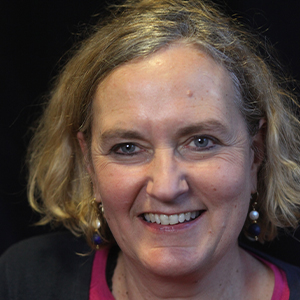
Claire Armitstead
Claire Armitstead
Claire Armitstead is Associate Editor, Culture, at the Guardian, where she has previously acted as arts editor, literary editor and head of books. She presents the weekly Guardian books podcast and is a regular commentator on radio, and at live events across the UK and internationally. She is a trustee of English PEN.

David Chariandy
David Chariandy
David Chariandy is a writer and critic. His first novel, Soucouyant, was nominated for 11 literary prizes, including the Governor General’s Award and the Scotiabank Giller Prize. His second novel, Brother, was nominated for fourteen prizes, winning the Rogers Writers’ Trust Fiction Prize, the Ethel Wilson Fiction Prize, and the Toronto Book Award. Brother was also widely translated and named a book of the year by The Globe and Mail, The National Post, The Toronto Star, The Montreal Gazette, Quill and Quire, the CBC, the New York Public Library, Kirkus Reviews, Esquire Magazine, and The Guardian. David’s most recent book is a memoir entitled I’ve Been Meaning to Tell You: A Letter to My Daughter. He lives in Vancouver and is an editor of Brick and a Professor of English at Simon Fraser University. In 2019, David was awarded Yale University’s Windham-Campbell Prize for fiction.
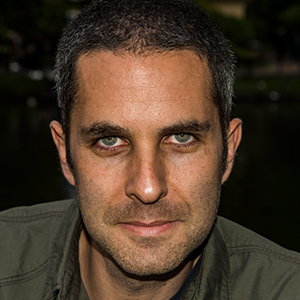
Tom Rachman
Tom Rachman

Eden Robinson
Eden Robinson
